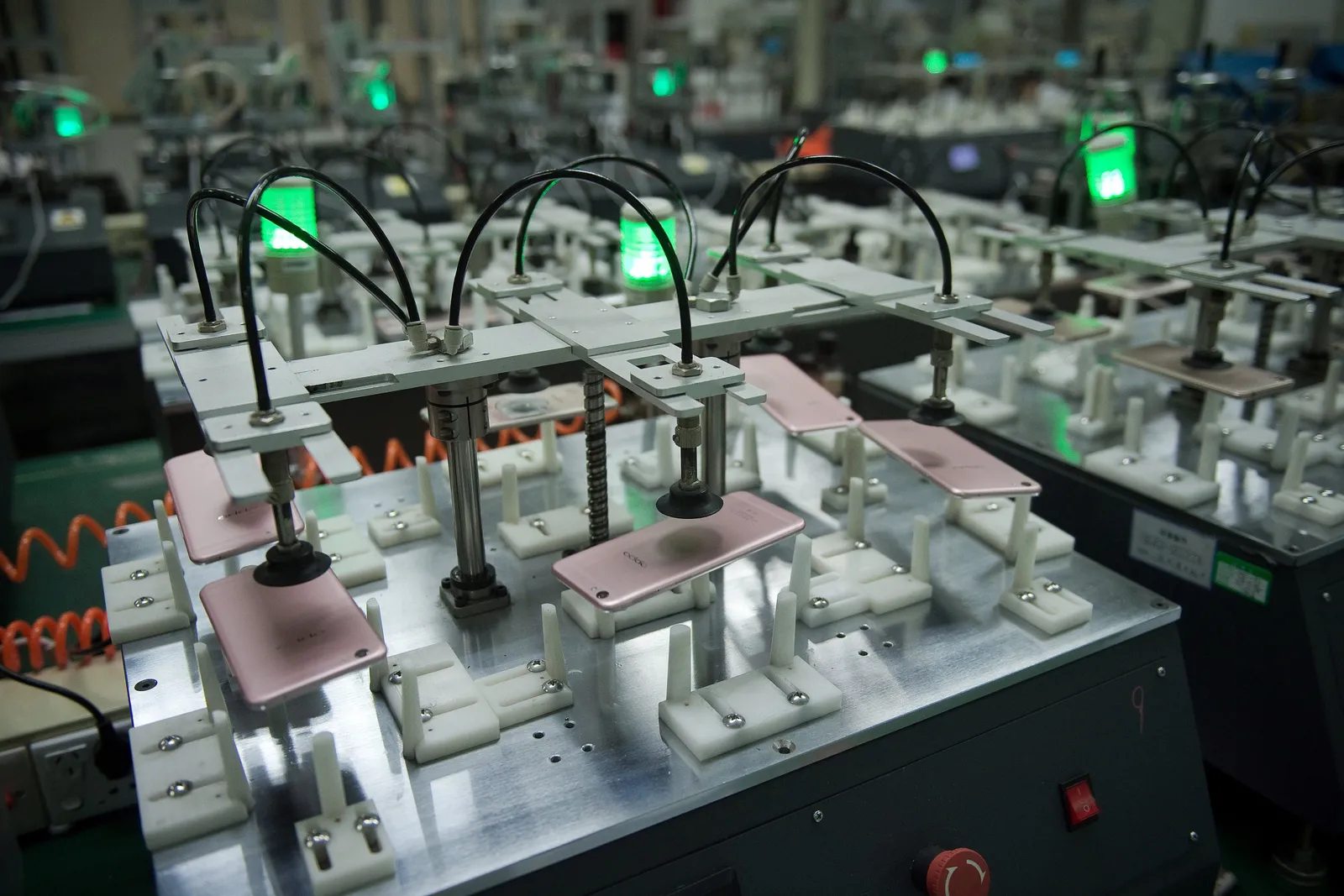
|
Getting your Trinity Audio player ready...
|
Introduction
The mobile phone manufacturing industry in Pakistan is grappling with significant challenges stemming from taxation and policy gaps. The Ministry for Industries and Production has highlighted these issues, which are affecting the sector’s growth and competitiveness. This article delves into the various hurdles faced by the industry and the anticipated policies aimed at resolving these concerns.
Key Challenges in the Mobile Manufacturing Sector
Taxation Issues
One of the most pressing challenges is the imposition of an 18% sales tax on locally manufactured devices. This tax has effectively narrowed the price gap between domestically produced phones and imported models, making it difficult for local manufacturers to compete. Consumers are less incentivized to choose locally manufactured options when imported phones are available at comparable prices.
Lack of Comprehensive Tariff Structure
Another critical issue is the absence of a comprehensive tariff structure for localizing parts and components. This gap has hindered efforts to boost domestic production of mobile device parts, which is essential for achieving full localization. The industry requires a supportive tariff framework to encourage the production and assembly of components within Pakistan.
Expiration of the Mobile Device Manufacturing Policy (MDMP)
The expiration of the Mobile Device Manufacturing Policy (MDMP) in June 2023 has left stakeholders in a state of uncertainty. The industry is eagerly awaiting the introduction of a successor policy to address existing gaps and promote sustainable growth. The forthcoming Mobile Device Manufacturing and Export Policy (MDMEP) 2024-27 aims to fill this void.
Anticipated Policy Changes: MDMEP 2024-27
Objectives of MDMEP 2024-27
The MDMEP 2024-27 policy is currently in the consultation phase and is expected to be finalized soon. It focuses on three core objectives:
- Sustainability: Ensuring the long-term viability of the mobile manufacturing industry.
- Localization: Increasing the domestic production of mobile device parts to reduce reliance on imports.
- Export Promotion: Encouraging the export of locally manufactured devices to boost the country’s economy.
Potential Impact of the New Policy
If effectively implemented, the MDMEP 2024-27 policy could significantly enhance the competitiveness of Pakistan’s mobile phone manufacturing sector. By promoting the use of locally manufactured products, the policy aims to reduce the country’s dependence on imported devices. Additionally, the policy’s focus on export promotion could open up new markets for Pakistani manufacturers.
Current State of Mobile Phone Manufacturing in Pakistan
Local Assembly of Mobile Handsets
Despite the challenges, approximately 93 percent of mobile handsets sold in Pakistan are assembled locally. This showcases the country’s potential for domestic production. Major international brands have established assembly facilities within Pakistan, indicating a positive trend for the sector.
Industry Advocacy for Policy Expansion
Industry representatives are advocating for the expansion of the upcoming policy to include products beyond mobile phones. They propose incorporating devices such as smartwatches, SIM-based tablets, point-of-sale (POS) machines, laptops, infotainment systems, and tracking devices within the policy framework. This inclusivity could diversify the industry’s portfolio and stimulate growth across a broader range of electronic products.
Government Support and Licensing
Licensing for Local Production
The government has issued licenses to 37 manufacturers to establish local production facilities under the existing mobile device manufacturing framework. This support has been crucial in fostering the growth of the local manufacturing sector. The upcoming MDMEP 2024-27 policy is expected to build on this foundation and further enhance the industry’s capabilities.
Future Prospects for the Mobile Manufacturing Industry
Enhancing Digital and Economic Growth
The successful implementation of the MDMEP 2024-27 policy could play a pivotal role in enhancing Pakistan’s digital and economic growth. By addressing the challenges related to taxation and policy gaps, the industry could see increased investment, job creation, and technological advancement.
Building a Robust Manufacturing Ecosystem
The focus on localization and export promotion is expected to build a robust manufacturing ecosystem in Pakistan. This ecosystem would not only cater to domestic demand but also position Pakistan as a significant player in the global mobile phone manufacturing market.
Conclusion
The mobile phone manufacturing industry in Pakistan stands at a critical juncture. While it faces significant challenges related to taxation and policy gaps, the anticipated MDMEP 2024-27 policy offers a ray of hope. By addressing these challenges and focusing on sustainability, localization, and export promotion, the policy could drive substantial growth in the sector. The government’s continued support and the industry’s advocacy for policy expansion are essential for realizing the full potential of Pakistan’s mobile phone manufacturing industry.
FAQs
What are the main challenges facing Pakistan’s mobile phone manufacturing industry?
The main challenges include the imposition of an 18% sales tax on locally manufactured devices, the lack of a comprehensive tariff structure for localizing parts and components, and the expiration of the Mobile Device Manufacturing Policy (MDMP).
How does the 18% sales tax affect local manufacturers?
The 18% sales tax narrows the price gap between locally manufactured devices and imported models, making it difficult for local manufacturers to compete and reducing the incentive for consumers to choose locally produced options.
What is the purpose of the Mobile Device Manufacturing and Export Policy (MDMEP) 2024-27?
The MDMEP 2024-27 policy aims to address the challenges facing the industry by focusing on sustainability, localization, and export promotion. It seeks to reduce reliance on imported devices and promote the use of locally manufactured products.
What is the current state of mobile phone manufacturing in Pakistan?
Approximately 93 percent of mobile handsets sold in Pakistan are assembled locally. Major international brands have established assembly facilities within the country, indicating a positive trend for the sector.
How is the government supporting the local manufacturing industry?
The government has issued licenses to 37 manufacturers to establish local production facilities and is expected to introduce the MDMEP 2024-27 policy to further support the industry’s growth.






